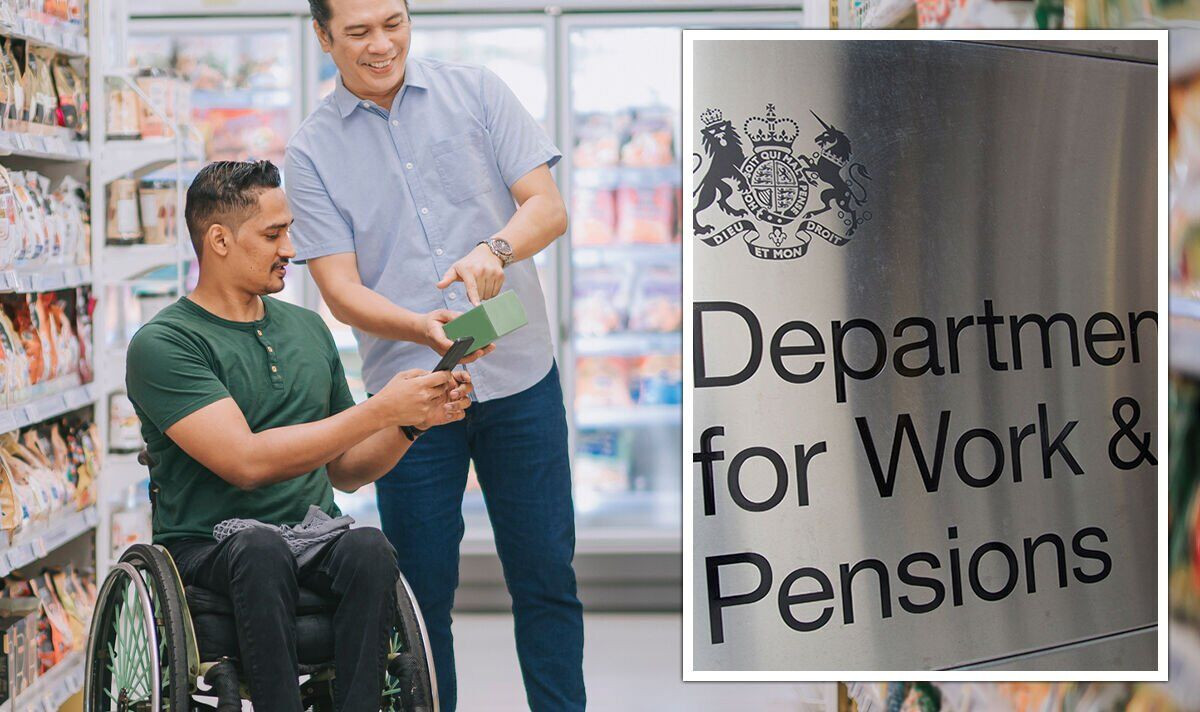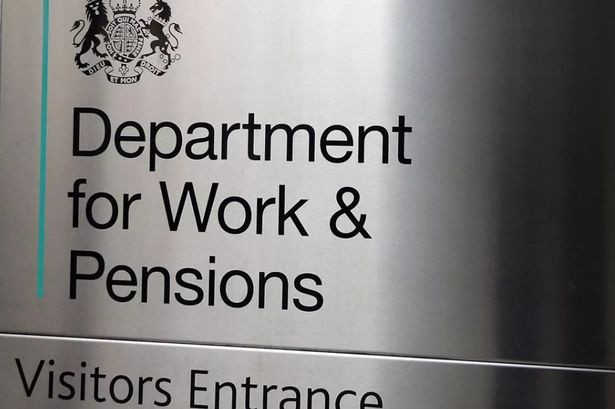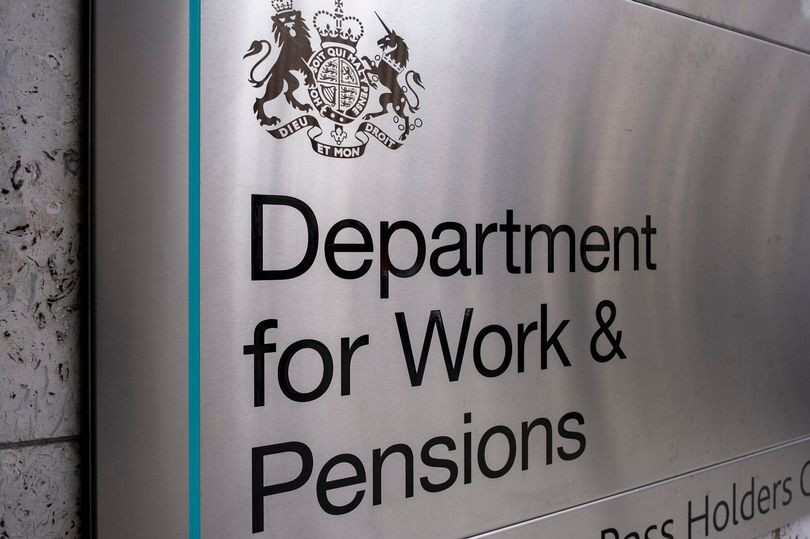The government is set to ask Personal Independence Payment (PIP) claimants to provide information on the additional costs of their disabilities in a new survey. Recent proposals for an overhaul of the benefit included controversial suggestions to replace PIP's cash payments, which can be up to £737 a month, with vouchers and grants.
Labour has indicated that it will not proceed with these plans, originally proposed under the Conservatives, and will outline its own changes to disability benefits next year. Disability equality charity Scope has welcomed the news that the “dangerous” voucher proposals appear to have been abandoned, but insists that urgent reforms of PIP are necessary.
PIP is intended to “help with extra living costs” for those with long-term physical or mental conditions or disabilities who struggle with everyday tasks or mobility. However, currently, no assessment is made of what these additional expenses are, with claimants instead being evaluated solely on how their health impacts activities such as meal preparation, bathing, dressing, and socialising.
DWP to Survey PIP Claimants on Disability Costs
Sir Stephen Timms, Minister of State for Social Security and Disability, has stated that the Department is now conducting a new survey of PIP claimants to gain a better understanding of their disability needs and costs. This study, which will examine why people need financial support from PIP payments, precedes new reforms to disability benefits due to be announced in spring 2025.
Following a written enquiry from Neil Duncan-Jordan (Labour, Poole) regarding the effectiveness of PIP in covering additional disability costs, the minister relayed survey findings. Sir Stephen responded: “Personal Independence Payment (PIP) provides a contribution to the extra costs that may arise from a disability or health condition. There is no objective way of deciding what an adequate level of PIP should be, as everyone has different requirements reflecting their own circumstances and priorities.”, reports Birmingham Live.
He further explained, “PIP is a non-contributory, non-means-tested, additional-cost benefit and can be worth over £9,500 a year, tax-free. Individuals can choose how to use the benefit, in the light of their individual needs and preferences. The benefit can also be paid in addition to any other financial or practical support someone may be entitled to such as Universal Credit, Employment and Support Allowance, NHS services, free prescriptions, help with travel costs to appointments or the Blue Badge scheme. The benefits have been consistently uprated in line with inflation since they were introduced and were, like other benefits, increased by 6.7 per cent from April 8, 2024.”
The DWP emphasised its commitment to understanding the extra costs for those with disabilities, noting: “DWP pays close attention to the evidence base on the extra costs faced by disabled people; including academic research, analysis by Scope, and DWP’s own commissioned research on the Uses of Health and Disability Benefits from 2019. In order to understand more, DWP is now undertaking a new survey of Personal Independence Payment customers to understand more about their disability-related needs. This project has an advisory group of experts including representatives of the disability charity Scope and academic experts.”
International Approaches to Disability Benefits
The department also made reference to international approaches, explaining that in other countries, disability benefits consider specific costs as shown in a prior green paper on PIP reforms. For example, in New Zealand, disability allowances are calculated based on documented extra expenses verified by a health practitioner, which can range from clothing and counselling to special diets and heating costs, all requiring proof such as receipts or bills.
In Norway, those claiming benefits must provide a letter from their GP detailing their condition and the associated extra costs. They may also need to provide receipts.
The individual must incur additional expenses for up to three years and can receive financial support for various things including disability equipment, transport, special diets, clothing, bedding and shoes. This evidence is then reviewed by a doctor contracted to the Norwegian equivalent of the DWP who makes the final decision on entitlement.
Meanwhile, in Sweden, the system provides a monthly cash payment at one of three rates for people who have additional expenses due to their disability that exceed what is expected for people of the same age. These costs cover a broad divided into seven categories: health, medicines and foods; wear and tear and cleaning; travel; assistive devices; assistance in daily life; housing; or other purposes that do not meet the above criteria.
To apply for the Swedish equivalent of PIP, individuals must complete an online form and calculate their extra costs before submitting a medical statement describing their disability. Costs can be calculated online using information provided by the Social Security Insurance Agency.
The form is assessed to ensure costs are associated with the disability, exceed what is expected in non-disabled people of the same age, and are reasonable and fair.
Disability Charity Calls for Urgent Reform of PIP
The disability equality charity Scope has highlighted that the current Personal Independence Payment (PIP) is insufficient for covering expenses. The charity’s policy manager, David Southgate, made it clear, saying: “Life costs more if you are disabled. Scope research shows that these costs add up to on average £1,010 a month for disabled people to have the same standard of living. The low amount that PIP provides doesn’t go far enough as it is.”
Uncertainty for PIP Claimants During Winter Months
Recipients of Personal Independence Payments (PIP) could be left in limbo for months, awaiting information on potential changes to the benefit. The previous Conservative Government had planned a significant overhaul of PIP, which included the possibility of replacing some payments with vouchers or eliminating cash entirely in certain cases.
The new Labour Government now faces the decision of whether to proceed with these plans. However, any expectations of a swift resolution seem to have been thwarted.
Reports suggest that it will likely be next year before the future of PIP is clarified, leaving claimants uncertain throughout the winter months. Experts have urged Labour not to hasten its decision and to thoroughly consider any potential changes and their impact.
PIP, worth up to £184 a week, is paid to individuals who need assistance with daily tasks. There is a prevailing opinion that the current system of universal payments is unsuitable and outdated, and a more targeted approach is required.
This could encompass various forms of aid including vouchers, single payment grants or a system based on actual expenditure. Labour has committed to reforming welfare, particularly the Work Capability Assessment (WCA) which determines eligibility for PIP, reports Birmingham Live.
However, it remains uncertain at this point whether it will adopt the Tory plans. PIP, standing for Personal Independence Payment, is divided into two segments: daily living and mobility, awarded according to the impact the claimant’s medical condition has on their everyday life. Concerns are rising that some individuals receiving PIP might find themselves disadvantaged following proposed reforms.
Voicing worries, The Resolution Foundation cautioned in a statement to The Independent: “These changes should not be made in haste. They will degrade living standards for low-income families, with 47 per cent of families who receive these incapacity benefits coming from the bottom 30 per cent of the income distribution.”
Labour to Shelve Controversial PIP Voucher Plan
An important update on the proposal to eliminate the DWP’s PIP payments for millions of benefit recipients has been revealed. A contentious consultation kicked off in the summer, suggesting various ways to trim welfare expenditure, including halting cash payments for Personal Independence Payments claimants and exploring alternatives like vouchers.
The strategies considered could replace the £737 monthly or £9,583.60 annual payments with non-cash options such as vouchers for essentials and disability equipment, a catalogue system, or reimbursements for condition-related expenditures. It even put forward the possibility of single grants in place of regular payments and called into question the assessment process for eligibility, reports The Express.
However, these reforms now seem shelved for the moment. The latest from new Pensions Minister Sir Stephen Timms on the PIPs plan confirmed: “We do not intend to publish a response to the previous Government’s consultation. We will be considering our own plans for social security in due course and will fulfil our continued commitment to work with disabled people so that their views and voices are at the heart of all that we do.”
Benefits and Work commented: “This does not rule out the possibility that Labour could come up with similar ideas in the future, but it makes it much less likely. It is very improbable that the government would decline to respond to a consultation on PIP vouchers and yet very soon afterwards unveil their own plan to introduce exactly the same thing.”
DWP: “No Plans to Publish Response to Previous Government’s Consultation”
Disability charity Scope is urging for an immediate reform of the Personal Independence Payment (PIP) after the Department for Work and Pensions (DWP) stated that it has “no plans to publish a response to the previous Government’s consultation”. The written response was given by Minister for Social Security and Disabilities, Sir Stephen Timms, to Lib Dems Chief Whip Wendy Chamberlain, who queried whether the DWP intended to respond to the consultation, which was published by the then Conservative government.
The ‘Modernising support for independent living: the health and disability’ Green Paper aimed to slash £12billion annually from the welfare bill until 2030. The consultation proposed replacing cash PIP payments of up to £737.20 every four weeks with various other forms of support, such as vouchers, one-off grants, a receipt-based scheme or choosing support aids from a catalogue, reports the Daily Record.
Other suggestions included revising eligibility for PIP, reviewing the assessment process and transferring PIP costs to the NHS and local authorities. It’s crucial to note that the DWP hasn’t outright dismissed these proposals, however, Sir Stephen also confirmed that over 16,000 responses to the consultation were received which were “mixed and for some proposals consistently negative”.
Responding to the announcement, James Taylor, Director of Strategy at disability equality charity Scope, stated: “It’s a relief that the government is rightly scrapping these dangerous proposals. They have created enormous amounts of anxiety for disabled people and their families.
“These plans to introduce vouchers and make it harder to get PIP would have had a devastating impact. Pushing disabled people further into poverty would worsen their conditions. It would make disabled people more isolated.”
Taylor also pointed out that the average monthly cost of running a household for someone with a disability is £1,010, highlighting the need for reform. He added: “PIP is in urgent need of reform, and with energy bills having risen again this month, we need urgent action. The government needs to listen and work with disabled people to fix our broken benefits system. We also need to see the introduction of discounted energy bills.”
DWP to Explore Changes to PIP Assessment Process
Earlier this month, the Minister for Social Security and Disabilities, Sir Stephen Timms confirmed that the Department for Work and Pensions (DWP) does “not intend to publish a response to the previous Government’s consultation”, effectively kicking the prospect of swapping Personal Independence Payment (PIP) cash for vouchers or grants into the long grass.
Sir Stephen gave the written response to Lib Dems Chief Whip Wendy Chamberlain, who asked if the DWP planned to respond to the consultation, published by the then Conservative government. Now, in another written statement, the DWP Minister has confirmed that the Department is “exploring potential changes to modernise the PIP service to improve claimants’ experience and trust in our services and decisions”.
He added that details of any changes to PIP will be set out “in due course”. Labour MP Charlotte Nichols had asked the DWP what progress has been made on “reviewing the fairness of PIP assessments”.
On October 25, Sir Stephen replied that the DWP is “not currently undertaking” any such review. He continued; “PIP is designed to treat all claimants fairly, focusing on the needs arising from a long-term health condition or disability, rather than the condition itself.
“Individuals can be impacted by their health conditions in different ways, so the PIP assessment considers the needs of each individual claimant against the assessment criteria set out in legislation, regardless of whether those needs relate to a physical or non-physical impairment.”
The DWP Minister went on to explain how the DWP has “set standards for the quality of assessments and closely monitors all aspects of the process”, which includes the performance of the assessment suppliers.
He added: “Our audit process considers the initial review, evidence collection, further evidence provided, and the advice within the assessment report completed by a health professional (HP). The check is completed against a set of guidelines to ensure a consistent approach is taken. This ensures that assessment reports are fit for purpose, clinically justified and sound, and provide sufficient information for the department to make an informed decision on entitlement to benefit.”
Sir Stephen also said that all assessment suppliers work with the DWP on “plans to continuously improve assessment quality” through a range of measures.
This includes:
He continued: “All claimants have the right to request a Mandatory Reconsideration (MR) if they disagree with their PIP decision. If they disagree with the outcome of their MR, they are able to appeal to an independent tribunal.
“We are exploring potential changes to modernise the PIP service to improve claimants’ experience and trust in our services and decisions. We will set out the details of any changes in due course.”
DWP to Reform Disability Benefits Based on “a Range of Evidence”
A DWP minister says reforms of disability benefits, including Personal Independence Payment, will be based on “a range of evidence.” The new update came in response to a question by Mel Stride, the Work and Pensions Secretary under the previous Conservative government.
In April, Mr Stride’s department had put forward a major overhaul of the benefit, including controversial proposals to replace cash payments with vouchers. The shake-up was aimed at reining in escalating costs, with PIP spending expected to grow by 63 per cent in the next five years from £21.6 billion in 2023/2024 to £35.3 billion in 2028/2029. Each month there are 33,000 more claimants starting to receive the benefit, double the rate of new awards before the pandemic.
More than 3.6 million people now receive PIP, which pays a maximum of £737 every four weeks at its most enhanced levels, equivalent to £9,583 a year. Labour has yet to set out its own revamp of PIP and other DWP benefits.
Mel Stride, who headed the DWP under the Conservatives and is now shadow secretary for the Department, called on the new government to give more details on its intended plans for PIP. He asked “what steps are being planned to reform Personal Independence Payment” and “what assessment has been made of the factors driving the rising caseloads and expenditure on the benefit.”
In a written response on Friday, Minister of State for Social Security and Disability Sir Stephen Timms said: “We will be considering our own response to social security in due course, informed by a range of evidence. This Government is committed to championing the rights of disabled people and to the principle of working with them, so that their views and voices will be at the heart of all that we do.”
Sir Stephen’s reference to gathering a range of evidence comes as he recently shared that a survey is to be carried out to find out more about the disability-related expenses that claimants need their payments to cover. PIP is designed to help with the “extra costs” of a disability or long-term mental or physical health condition but does not take account of what these costs actually are.
Proposals in the Conservatives’ green paper for ‘Modernising Support for Independent Living’ published in April included replacing cash payments with vouchers, grants, or catalogues so that people could directly purchase disability-related equipment and services. Another option was asking claimants to pay for these upfront and then provide receipts to claim back “a contribution towards the cost.”
Consultation on the green paper continued through the General Election and into Labour’s new administration, ending on July 22. Sir Stephen said the feedback was either “mixed” or “consistently negative” and that Labour would not be issuing any response to these measures set out by the previous government but is instead developing its own proposals.
Reports suggest Labour’s plans for disability benefits will be announced next spring rather than in the Get Britain Working white paper it plans to publish this autumn or in Chancellor Rachel Reeves’ new Budget on October 30. Ms Reeves has, however, stated that her first fiscal statement will require “difficult decisions on tax, on spending, and on welfare,” suggesting that some benefit changes could be outlined at that point.



















